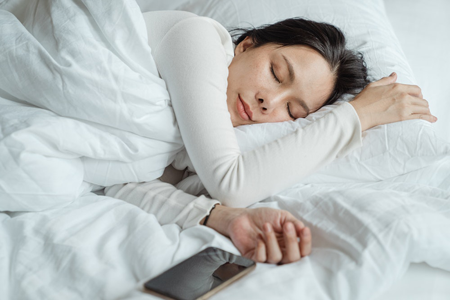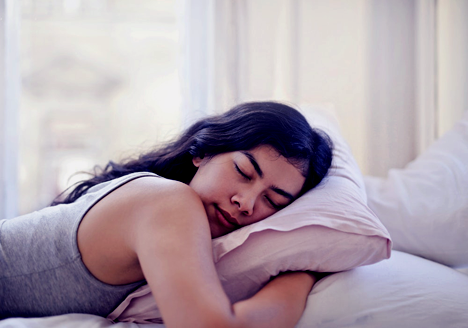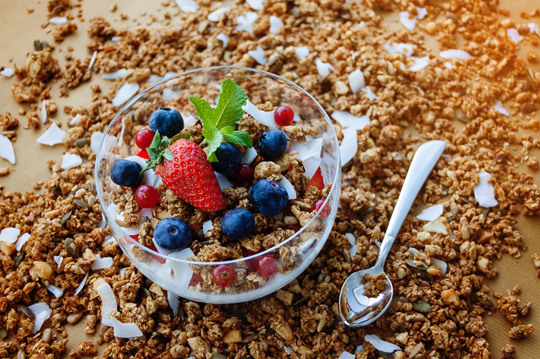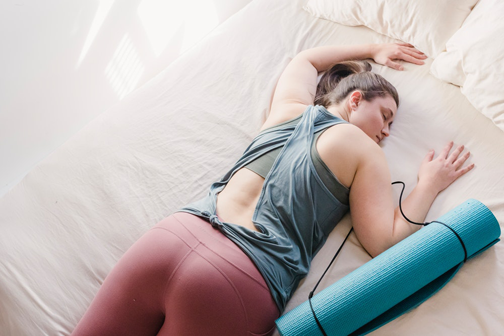The quality of your sleep is an incredibly important aspect of your health. If you aren’t sleeping well, your entire body and mind suffer… not to mention your work performance and your emotional wellbeing.
25 Surprising Facts You Didn’t Know About Sleep (Until Now)
By Charles Vallena
Sleeping is a basic human need. Just like eating and drinking, the body is built to rest to keep its basic functions at its best. Sleep having a lot of benefits for the mind and body is something common –it is general knowledge and it is an instinct to follow your body when you are sleepy.
However, there are facts about sleep that might surprise you or might inform you about how important sleep is. Here are 25 facts that might surprise (or educate you) about sleep.
1. Humans spend about 1/3 of their life sleeping. That is with an average of 8 hours of sleep in a lifetime. The average sleep a person does is around 26 years. And around 7 years in your life’s worth of trying to sleep. If you do the math, that is around 33 years of being in bed!
2. People who were born blind do have dreams! They have no vision during their day-to-day lives and cannot see in their dreams. They do experience dreaming in the form of smell, emotions, and sound, rather than sight.
3. Some people dream in black and white. Around 12% of the population have dreams without color.
4. The typical amount of time spent in bed before you sleep is around 10-15 minutes. If you sleep instantaneously as soon as you lie down in bed, it is likely that you are sleep-deprived.
5. Having caffeinated drinks before bedtime interrupts your sleeping cycle. It delays your internal body clock by 40 minutes.
6. You can only dream of faces that you have already seen.
7. You can’t entirely remember your dreams. You will forget 50% of your dreams after 5 minutes of waking up, and around 90% in another 5 minutes.
8. You can’t sneeze while you are sleeping. It is not possible to sneeze if you are totally asleep because sneezing is a reflex. The part of the brain responsible to respond to these reflexes is less active when asleep.
9. You will die faster if you are sleep-deprived rather than due to the lack of food. On average, a person can survive 2 weeks without water and can only survive around 10 days without sleep.
To aid with sleep, add magnesium to your diet. It increases. gamma-Aminobutyric acid (GABA). GABA promotes both sleep and relaxation. Low GABA levels in the body can make you struggle to sleep and relax. A few sources include legumes, spinach, seeds, and nuts.
10. Adults who sleep less than 7 hours are more prone to have diabetes, cancer, or asthma.
11. Do you feel sleepy by the afternoon? You are not alone because studies show that tiredness peaks twice each day: at 2 am and 2 pm. That is why you are less attentive after your lunch break.
12. Moving to a higher altitude will make you more likely to have sleep disruptions. The higher the altitude, the more sleep disruptions you will have because of the lower oxygen levels in that area. This usually causes a change in your respiration. You can become more acclimated as you sleep in higher altitudes more often.
13. Does your partner snore at night? An average of 1 hour of sleep is lost when you sleep with a snorer. You will likely be awakened about 20 times in a night sleeping with someone who snores.
14. The longest time a person was not able to sleep was recorded at 11 days; that is about 264 hours.
15. If you have 3 or 4 nights without napping or sleeping, you can hallucinate. Sleep deprivation can cause cognitive changes. At these times, you can start having delusions, psychosis, and paranoia.
16. Have you ever felt like falling or jerking as you are about to sleep? This involuntary muscle movement is called hypnic jerks. This usually occurs as a person transitions from wakefulness to sleep.
17. Sleepwalking is also known as somnambulism. This occurs in 23% of children and roughly 4% in adults. Most people who sleepwalk have no memory of what they did.
18. There is a direct link between people’s personalities and their favorite sleeping position. Although people sleep in as much as 30 positions at night, the favorite or the commonly used position is reflective of behavioral tendencies.
19. The main emotion during nightmares isn’t fear. Researchers have found out that people who have nightmares are likely to feel guilt, confusion, and sadness.
20. For unclear reasons, a person’s pain tolerance is decreased when he lacks sleep. A study was conducted where sleep was reduced by 50% of their usual time. Pain tolerance significantly decreased as a result.
21. Are you studying for an exam? You should make sure you have enough sleep the night before because sleep solidifies what your brain is trying to remember. Likewise, sleep deprivation can also affect your memory.
22. Do you still count sheep when you have difficulty sleeping? You may want to stop imagining sheep because scientists have discovered that it is an ineffective way in falling asleep. An alternative that works better is imagining a calming landscape.
23. Using your mobile phone, laptop, or tablet before bed can disrupt your sleeping pattern. This is because the blue light from these gadgets trick your mind into thinking it is daytime.
24. You can lose weight while you are asleep. Studies show that sleeping aids in weight loss and that you can actually exhale all the calories burned that night.
25. A minor light exposure alters your sleep and causes disturbances, even though you are not awake. These lights include the alarm clock, when one opens the door, and when the curtains open at dawn.
From the moment you lay in bed until the time you open your eyes, sleep has a unique way of rebooting your body. Although at times it is not fully understood, patterns of sleep and dreams in your sleep can affect your mood, growth, and energy upon waking up.
Experts recommend an average of 7 to 9 hours of sleep for adults, although some people can manage to live a healthy lifestyle with less or more sleep.
These surprising facts about sleep can change the way you view your resting time, and can make you try different tricks to make sure your body gets the right quality and quantity of sleep.
References
https://www.dreams.co.uk/sleep-matters-club/your-life-in-numbers-infographic/
https://www.bbc.com/news/blogs-ouch-28853788
https://www.nytimes.com/2008/12/02/health/02real.html
https://blog.memd.me/why-dont-we-sneeze-while-we-sleep/
https://pubmed.ncbi.nlm.nih.gov/21807927/
https://www.vitalistics.com/70-strange-fascinating-facts-about-sleep/
https://www.healthline.com/health/healthy-sleep/how-long-can-you-go-without-sleep
https://www.medicalnewstoday.com/articles/324666#what-is-a-hypnic-jerk
https://www.sleepfoundation.org/parasomnias/sleepwalking
https://www.psycom.net/sleep-position-personality-traits
About the Author: Charles Vallena

Charles is the editor-in-chief at TheSleepMatters.com.
He manages a team of sleep experts who provide researched insights, guides, and reviews on different types of mattresses online.
Follow SleepMatters on Facebook here.
Thanks to Charles Vallena for sharing these insights about the importance of sleep as well as information that you might not have known.
Stevie Wilson
LA-Story.com
Want to leave a comment or ask a question? Please send an email to stevie.wilson@LA-Story.com
________________________DEALS and STEALS(Affiliate Links)
I curate deals that offer bonuses, bargains, and great products –and some are very specifically for this site to feature to my audience because I want my audience to get amazing products from great brands!
Disclosure: some of the links on this post might have affiliate links! It costs you nothing. If you buy something, the brand pays me a small percentage.
If you purchase via my link, I make a very small percentage for that purchase. It does not add any additional cost to the product. The price you see is the retail price (depending on store or vendor) .
Sunscreens Are Essential in Summer: Try COOLA Full Spectrum 360 Sun Silk Drops SPF 30

COOLA’s breakthrough Sun Silk Drops— your daily Full Spectrum 360° protection from the sun, environmental toxins, and digital overexposure.
Their advanced organic formula is light-as-air yet protects against broad-spectrum UVA/UVB, IR (infrared), and HEV (high energy visible) Light, meaning they’ve got you covered from beach to board meeting. A fast-absorbing complex blend of plant stem cells and patented LightWaves Defense [JS+M] technology helps to prevent visible signs of aging from both indoor and outdoor daily aggressors. Finally, full-spectrum organic skincare that keeps up with your everyday modern lifestyle!
What else you need to know:
This product is formulated without oxybenzone. It is vegan, non-GMO, TSA-friendly, and cruelty-free.
Available at Sephora.com and Coola.com
Subscribe to RSS headline updates from: http://feeds.feedburner.com/la-story/Bpyd
Powered by FeedBurner
If you are going to feature content from LA-Story.com including images, podcasts, or videos including the accompanying text, please respect copyright provisions. We require a notation of content origination (meaning credit tag), a link- back to the specific page & please email the link to stevie.wilson@la-story.com before the piece goes live.
LA-Story.com, LA-Story Recessionista, Celebrity Stylescope, Celebrity Style Slam Trademark/Copyright: KBP Inc./TNBT Inc 2007-22






